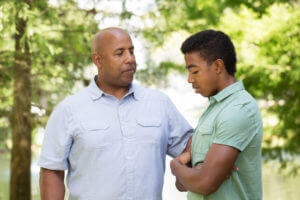
What does joint custody mean
What does joint custody mean
Wondering what does joint custody mean? Joint Custody is an arrangement where each parent has the children for equal (or close to equal) amounts of time. The most common schedule is that each parent has the children for one week at a time, typically exchanging the children on Fridays or Sundays. If you are considering a joint custody agreement with your soon-to-be former spouse or romantic partner, there are several factors you need to consider:
How do you make decisions?
Can you and the other parent truly cooperate and agree upon every major decision regarding the children? Maybe you can, but there is a distinct possibility you may not be able to do so for the many years to come. If this is a concern, you may need to name a “tiebreaker” parent for major decisions such as religion, education, medical/dental, and extracurricular activities.
Holidays
Each parent is going to want holiday time with the children. There may also be holidays that are important to one parent but not the other parent. For example, one parent may have a big family reunion on July 4th each year, while the other parent does not have any special activities that day. It may make sense for the parent with the family reunion to have that holiday. Other holidays may need to be divided up in a way that is fair to both the parents and the children.
Work and Activity Schedules
You need to be sure that joint custody will work for the work and activity schedules for your family. If one parent works overnight every night, and you have young children, joint custody is probably not appropriate. If the children have an activity that is at 6pm every Wednesday, but Dad always works until 7pm on Wednesdays, he may not need to have them on Wednesdays if he can’t get them to their activity.
Communication and Cooperation
Above all, communication and cooperation are key items in a joint custody arrangement. Both parents will have regular responsibility for making sure schoolwork is completed, medications are taken, and uniforms are sent back and forth as needed. This will require frequent communication and cooperation among the parents. If you cannot put aside your differences enough to work together on this level, then joint custody may not be for you.





